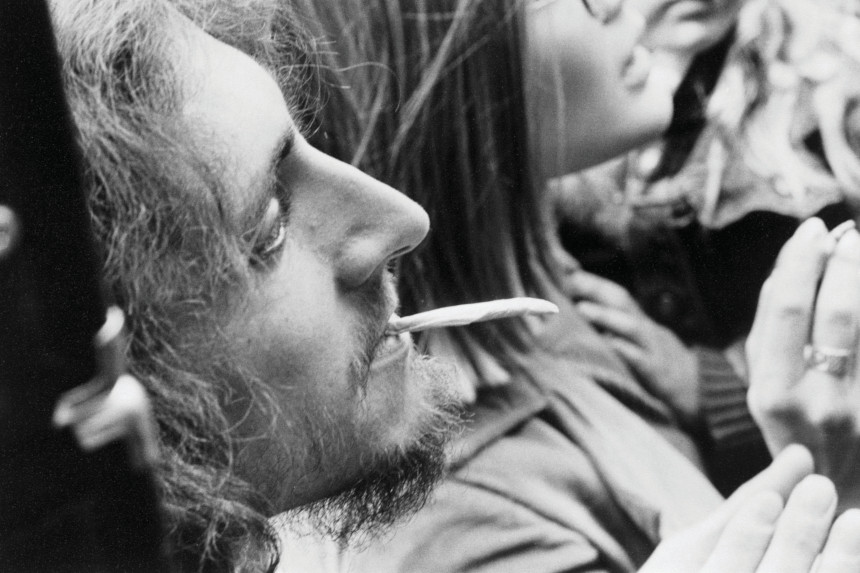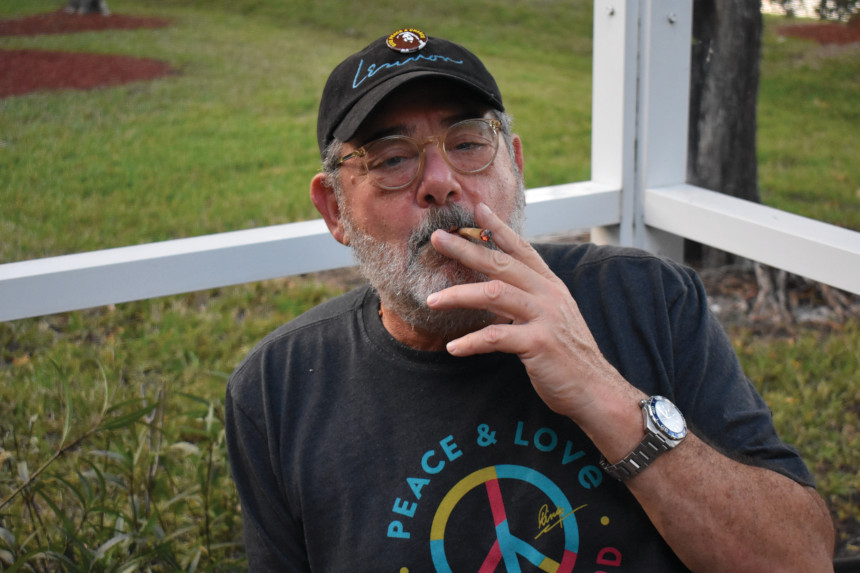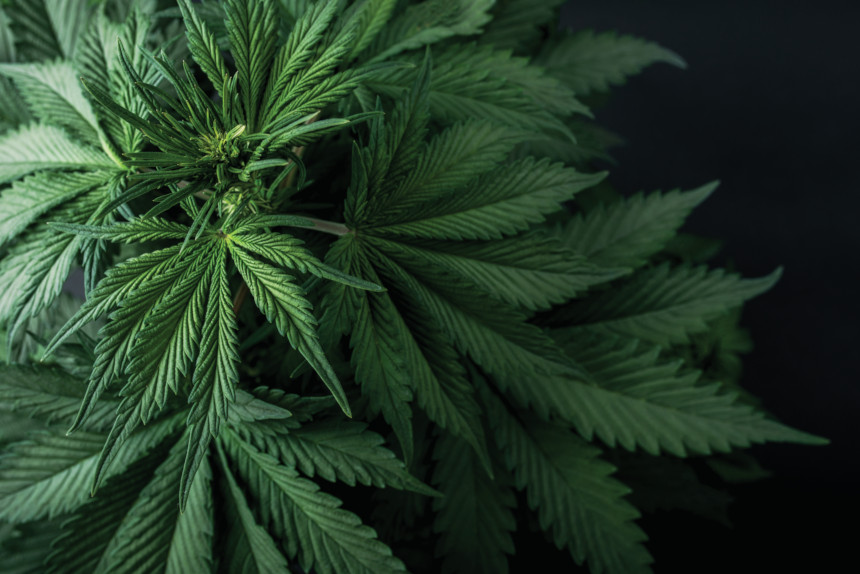There is no denying that over the past 60 years, marijuana has become a major part of the American experience. The drug was a cornerstone of the counterculture of the ’60s and ’70s and has since become synonymous with the rebellious spirit of young Americans. But it ain’t just the kids anymore — because many of those kids ain’t kids anymore.
As a recent study in the Journal of the American Medical Association details, marijuana use among older Americans (those 65 and up) has been steadily increasing over the past decade. The study estimates that between 2015 and 2018, the number of older Americans using marijuana increased by as much as 4.2 percent every year, a growth rate much greater than we’ve ever seen before. These findings were consistent with research conducted by other institutions (including studies by New York University and Harvard), which found that as marijuana became legal in more states, older Americans were more inclined to use it.
So the question isn’t whether older Americans are interested in using marijuana — the studies say they are — but rather why they are interested in using it.
While plenty of older folks enjoy the recreational use of pot, the drug’s health benefits seem to be a more important motivation. “A main reason for the increase in older adults using cannabis is for treatment of chronic symptoms that can be common among older adults, such as pain, sleep problems, anxiety, or depression,” explained Dr. Benjamin Han of the University of California San Diego.
“Even if you used it when you were younger, today’s medical stuff is stronger. You can’t just smoke a whole joint.”
In this way, marijuana is establishing itself as an alternative to substances that older Americans already use for both medical and recreational purposes. Many Americans are replacing medications such as Xanax and Adderall with marijuana products, incorporating the new substance into their nightly routines. Similarly, many older Americans are replacing the classic mainstays of nightly recreational self-medication — a glass of wine after dinner, for instance — with marijuana. One 68-year-old woman said that marijuana is “more like a cocktail after work” for her. She explained that while “alcohol is less predictable,” marijuana products have provided her with a “more functional high” that has been particularly helpful in dealing with the overwhelming stress of the COVID-19 pandemic.
In any case, this new experience of marijuana — as a nightly ritual to help with stress and other medical issues — seems like a radical departure from the classic image of the drug that developed during the youths of the baby boomers. In the ’60s and ’70s, weed functioned for young people as an act of rebellion against their parents, members of the Greatest Generation who had endured the Great Depression and World War II and for whom marijuana had been stigmatized. When interviewed for this article, one older American told a story of the time his father caught him smoking in the late ’60s. “He said that he understood why I wanted to experiment,” said the interviewee, “but that he still was disappointed.”
As recently retired journalist Dan Freedman explains, trying weed was a major part of the college experience that provided students who were living on their own for the first time with an opportunity to discover who they were. “It was a rite of passage,” said Freedman, “one of those things about being in the ’60s. You felt like you had to do it. I never bought it on my own, but if there was a joint at a party, I would take a hit. It was always a social thing, and I continued with it as a social thing.”
Boomers didn’t invent marijuana, of course. Still, weed was a significant factor in the larger counterculture of the era. It was central to landmark events such as Woodstock and the Summer of Love and even informed people’s political identities. Take for example the experience of Ed Dwyer, a self-described “dedicated pot head.” Dwyer first earned his counterculture stripes by writing the official program book for the Woodstock Music Festival in 1969 (a story he retold in “By the Time I Got to Woodstock” in the Post’s July/August 2019 issue). This experience eventually led Dwyer to a career in journalism, most notably including his time as a founding editor of High Times, a magazine that celebrates cannabis culture and advocates for the drug’s legalization. “Smoking weed was a lifestyle and a political decision,” said Dwyer. “It was part of a rebellion.”

So, did the experience and culture of marijuana change for today’s senior stoners as they matured? Has weed continued to be a communal, personal, and political institution in boomer life, or has it transformed into something else?
As was the case with the generation’s first experiences with the drug, the stories vary from person to person. Not all boomers who smoked when they were young kept the habit. Some quit smoking weed when faced with the responsibilities of holding down a job and raising children. Others quit for health reasons. Freedman, who started running and doing marathon training when he turned 60, hasn’t smoked in years. The experience of running, he said, “feels like a lingering natural high.”
The drug’s effect on an individual can change as they mature, a phenomenon that is both biological and psychological. “With aging, our bodies become more sensitive in particular to substances with psychoactive properties, such as cannabis, alcohol, opioids, and benzodiazepines, to name a few,” explained Dr. Han.
In addition, he pointed out that there are a number of chronic conditions, such as cardiovascular disease and chronic lung diseases, that could place an older adult at higher risk for adverse outcomes when using marijuana. “The problem is at this time, we do not have good evidence for us to weigh the benefits and the risks of cannabis use,” said Dr. Han. “While marijuana may be beneficial for some older adults with specific symptoms or chronic diseases, we do not know who may be at high risk for experiencing harms.”
“These are the generations that popularized marijuana, and they had to learn about the drug’s effects firsthand back in the day,” said Dr. Joseph J. Palamar of New York University’s Langone Medical Center. “But older people can be more sensitive to the effects of drugs, so they may not be able to handle marijuana as they could decades earlier.”
And it isn’t just pot smokers’ biology that has changed over time; the marijuana itself is different. “Even if you used it when you were younger, today’s medical stuff is stronger. You can’t just smoke a whole joint,” explained Dr. Peter Grinspoon, a teacher at Harvard Medical School and author of the memoir Free Refills: A Doctor Confronts His Addiction. In fact, the term smokers is now a misnomer for a vast number of boomers who use marijuana. As this generation has aged, many of its members have replaced traditional methods of marijuana consumption with new forms, like edibles and vape pens.
And while some senior stoners are certainly still smoking together in classic communal settings (Ed Dwyer proudly admitted that, pre-COVID, he and a few buddies routinely passed around a joint at their regular poker nights), many are opting to incorporate marijuana into their lifestyles in different ways. Marijuana use is no longer the act of rebellion it once was for boomers, but rather a privilege they enjoy in old age.
Even as many senior stoners transition to new methods of intake, they should still be warned against unhealthy practices. Concerns about the dangers of vaping have been well documented, scaring off some users who’d believed at first that the practice was safer than smoking. And, as Dr. Palamar noted, “a lot of older people seem to be particularly fond of edibles, but people should be reminded that if they eat an edible, they should try to take things slow. Once you eat too much there’s no turning back. And older people are more susceptible to falls, so any psychoactive drug should probably be taken with caution in order to avoid injury.”

Whether the aim is happiness or health, one thing has stayed consistent about boomers’ relationship with marijuana: It has always been widely available to them. In the ’60s and ’70s, young Americans chose to use marijuana as a way to push back against their parents and to find a sense of a community and personal identity. Now that they’re older, the way boomers choose if and how they use marijuana — medicinally or recreationally, with others or alone — is still a key aspect of their identity.
Use it; don’t use it. It’s a choice today that in many states is free of legal consequences. And as the national push for the legalization of marijuana continues, it will become more available and destigmatized, attracting a greater number of older Americans for both medical and recreational purposes.
With boomers leading the way, that opens the door for many other Americans across the generational specturm to explore marijuana at their discretion. “The number of older people who use weed will certainly continue to increase,” said Dr. Palamar. “This is one of the most solid drug use trajectories we’ve seen in recent years, aside from vaping among teens. Not only will more older people initiate or re-initiate, but this trend will be accompanied by a higher percentage of people of all generations who use it.”
For senior stoners of all kinds, veterans and newcomers alike, their generation has been at the forefront of marijuana use. “There’s a mystery and a history to marijuana,” said 69-year-old medical marijuana card-holder Harry Lebowitz, adding, “but for our generation, after all these years, there’s a lot less mystery.”
As Dan Freedman declared, “At this age, I am who I am. But that’s the beauty and the curse of America — the freedom to reinvent yourself.”
Nicholas Loud is a history and creative writing major at Columbia University and was the Post’s fall 2020 editorial intern.
This article is featured in the March/April 2021 issue of The Saturday Evening Post. Subscribe to the magazine for more art, inspiring stories, fiction, humor, and features from our archives.
Featured image: Shutterstock
Become a Saturday Evening Post member and enjoy unlimited access. Subscribe now




Comments
I indulged in joints in college with friends. The 70s were fantastic, mainly because we didn’t have this horrific Social Media that is destroying the Country, families and relationships. I haven’t had a joint since 1981, but my husband and I say that once we retire, we WILL sit down together and not bogart a joint together. Right now I drive a school bus and we have random drug tests, so I won’t in any way risk my job, or, more importantly, the safety of the kids on my bus. But, I do wax nostalgic for sitting around with friends talking about anything and everything, listening to Led Zeppelin and enjoying the surrounding blacklight posters on the walls! Oh, and then the crazy combo of foods when we got the munchies! Crab claws and oreos, anyone???
It maybe so, older Americans smoking, ingesting pot to feel better. Because we used it when we were young, we KNOW it won’t hurt us, or leave us with second hand side effects like prescription drugs made by man. Nope, God knows what He is doing when He creates a pain relieving plant. It was up to us to locate it and use it. More will try it, because they are SICK and TIRED of being sick and tired, from those prescription drugs that should be illegal for oh so many reasons. I trusted doctors when I was a teenager, and soon after letting them insert a dalkon shield for “protection” could not deliver any babies for the remainder of my entire life. And that was when I decided prescription anything was not only harmful to our health, but possibly a way for them to control us from then on. I mean taking pills daily for a sickness only creates more of the same…more pills for side effects! Trust in God’s pharma…
senior stoners hello from up north.sitting by the sugar shack. listening to the melody of the sap the sound the sweet water droplets make when they hit the tin bottom of the bucket. the sun just illuminated the valley they gonna run today…tree old guys the doctor,the bar owner,the ski bum trout bum golf bum buddies from way back. get togheter for suggaring ,we celebrate beeing alive.they read your article .the subject was and still brings comments from different environnemnts. enjoy today my friends ,got to boil ,the feeling of the smell the sweetness of the vapor the heat of the stove the fire wood….than we,ll get the munchies
Its fine if you dont want to partake, just dont stand in the way of others who would like to. It shouldnt be a legal issue, especially when alcohol, tobacco and prescription medications, (not to mention food science), are all such big killers. Its my life and my decision to make, the government should have no say in this matter any more. Who are they keeping ‘safe’ anyway? (A: Big pharma)
I am a Vietnam era veteran who got sober at a VA Hospital in 1977 from a chronic and obsessive use of marijuana. I have maintained my sobriety ever since. I don’t think I will be returning to the use of marijuana. The THC levels are astronomical now compared to what we used in the 70’s and I don’t think we understand the psychoactive nature in how this will affect our populace from the young to the old. Thanks but – No freaking way!
I’m 61 and clean and sober 25 yrs, but I’m smoking weed again, I would rather do that than eat norcos, and destroy my liver. I enjoy it as recreational too on the weekends
People gets sick and tired of taking pills that do nothing for pain and is restricted in many cases like the VA and others, so weed is the drug of choice. Get rid of pills altogether!
It’s neither a point of pride or regret, just a thankful heart that I didn’t use it while in college. or as a Vietnam war era veteran, or since. The only addiction I embrace is life. I know some with chronic pain that have found relief and I understand it – but as a mechanism to cope with life then or now – thank you – no.